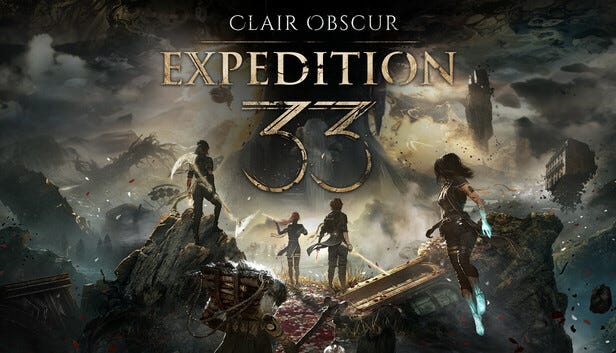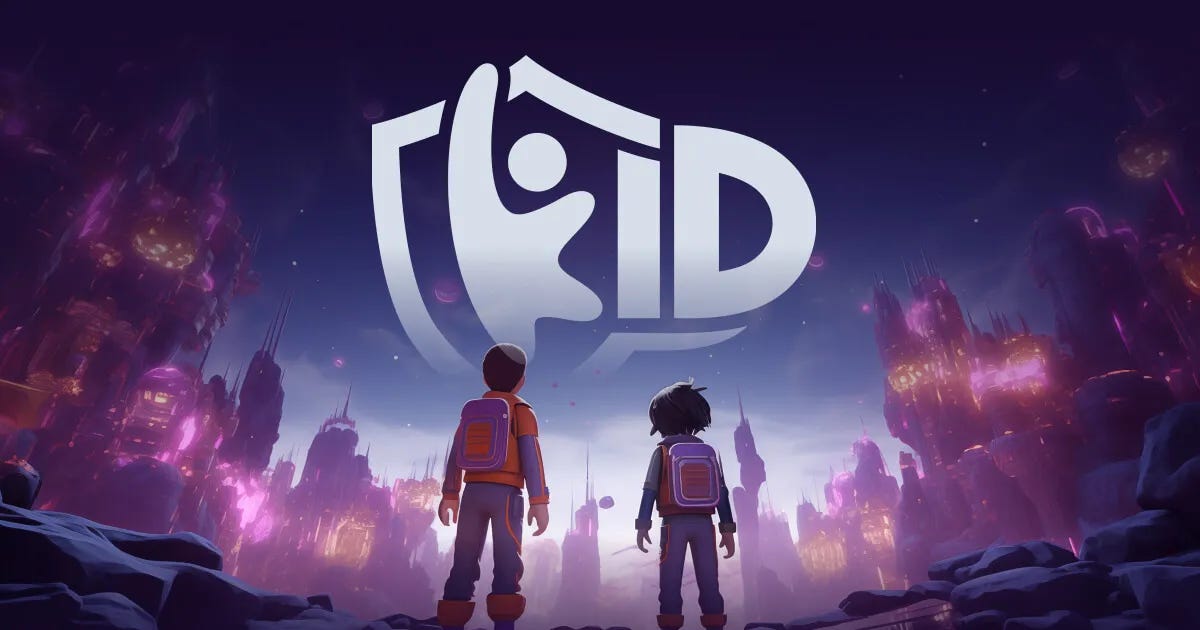Top 5 Startups in Video Games - Summer 2025
Five breakout startups poised to reshape the gaming industry’s core stack.
In this series I want to highlight the most exciting and promising startups within the video game industry based on innovation, potential impact, and my general excitement about the startup.
It’s June of 2025, the Seattle sky is flipping a coin every day to decide whether it wants to resemble Tatooine or Mount Doom. It’s time to take a deep dive into the future of the video game industry, and look at the startups that are going to shape digital entertainment for the years to come.
First, due to the fact that 10 year old companies raising Series E rounds with 100+ employees still market themselves as a startup, I feel it’s necessary to define what I’m considering as a startup:
Less than 5 years old
Hasn’t raised a Series C (Pre-Seed -> Series B)
Less than 100 employees
The criteria I’ll be ranking these companies on:
Impact how much could the startup change the industry
Innovation how novel or innovative is the product
Prospect how likely the company is to succeed
How Interesting I Find the Startup because it’s my list
Sans Strings Studio
If Punch-Out!! had a baby with Sesame Street and Adult Swim.
https://sansstrings.studio/
Category Game Developer
Innovation Real-time puppetry, narrative-driven physics gameplay, and unique humor
Started 2023
Fundraising Pre-seed (a16z Speedrun Incubator)
Key Investors a16z Games
Sans Strings Studio is an exciting new game studio that blends puppetry with a novel end-to-end animation pipeline to create something truly visually unique in the game industry. Their debut title Felt That: Boxing made waves at Summer Game Fest 2025, with its unique humor, jaw dropping visuals, and real-time claims to the rendering.
The studio was founded in 2023 by ex-Adobe VP and creator of Substance 3D Sébastien Deguy and UE digital puppetry expert Ryan Corniel and is backed by a16z Games via the Speedrun Incubator. With both founders' track record of creating impressive novel visual technology and support signals from a16z Game’s Speedrun backing, I don’t expect this to be an “actual gameplay footage” misrepresentation from legendary E3 trailer debuncles.
Summer Game Fest 2025 featured a lot of impressive new studios, from Section 9 Interactive’s Depth of Abyss, to Team Clout and ILL, and finally Beethoven & Dinosaur’s “Mixtape”, were all high contenders (with B&D being disqualified by being founded in 2019). But video games are visual-first spectacles, with visual innovation often marking generational advancements more than gameplay, hardware, or services. Felt That: Boxing could be the first wave of many new groundbreaking visual styles.
The major risk is that Sans Strings Studio does not have a game developer founder, so even if the impressive visuals are achieved in real-time gameplay, the game will turn out more of a tech demo than an engaging groundbreaking title. Another risk is timeline, with no release date and no gameplay footage, this single title studio may be wrapped up in development for years before we can fully judge their potential.
I am of the mindset that art is the single most important discipline at a game studio, and art direction has the largest impact on communicating production value and quality. Felt That: Boxing has such a striking and powerful visual, some might argue not seen since Doom or early cel shaded games such as Jet Set Radio, that it makes even my cynical mind light up with excitement for the future of games.
nunu.ai
An AI agent that can test your game and break world records.
https://nunu.ai
Category Testing Automation
Innovation AI agents that automate end-to-end game testing
Started 2024
Fundraising Seed Round, $6 million
Key Investors TIRTA Ventures, Andreessen Horowitz
nunu.ai is trying to make good on a decades-long promise of augmenting traditional manual game testing with intelligent AI agents that simulate player behavior and test gameplay loops at scale. If they are successful, game studios will have 24/7 testing available across all platforms and be able to perform massive multiplayer tests without the need for open Beta tests.
AI agents can traverse environments, trigger edge-case bugs, test UI responsiveness, and catch regressions that would take human QA hours or days to identify. Game teams can plug in nunu.ai for real-time feedback as they develop. Think about a future where a designer checks in changes and instantly receives feedback on functionality, difficulty, and other qualitative gameplay properties. nunu.ai’s agentic ai testing is miles ahead of traditional testing frameworks with low level automated code tests or testing middleware that provide automated functional and regression testing.
nunu.ai has partnered with Roboto Games to test their title Stormforge, claiming a 50% reduction in QA costs while requiring 5 hours to integrate. Another claim is automating the full 30 minute tutorial in Hogwarts Legacy, solving puzzles and completing combat scenarios.
There are a few risks to nunu.ai, starting with the accuracy of its testing. AI agents may be able to complete tutorials but can they test edge cases or make nuanced decisions players might make? Another risk is how generalizable can nunu.ai make its testing agents. Can they truly have the same agent for a fighting game as an RTS? Finally is the pricing. Enterprise prices are not publicly available and so it’s difficult to compare to other cost cutter measures such as outsourcing QA to a specialist service.
Nobody will find it controversial that I believe QA and testing are on the short list for disruption from modern AI advances. nunu.ai could be the first step in humanless playtesting, empowering games to ship faster and at higher quality.
Kepler Interactive
If your local co-op grocery store was a can’t miss publisher.
https://kepler-interactive.com
Category Game Publisher
Innovation Developer-owned co-op publisher model
Started 2021
Fundraising Funding Round, $120 million
Key Investors Netease
Kepler Interactive is a new publishing model created and operated by 7 independent studios: A44, Alpha Channel, Awaceb, Ebb Software, Shapefarm, Sloclap, and Timberline Studio. Each studio has an equal say in Kepler’s operations and shares in profits.
Unlike traditional publishers who part or all of development in turn for a percentage of revenue and ownership of the IP, Kepler operates more like a co-op. Studios keep their IP, maintain creative independence, and share financial upside through the parent company.
Kepler found early success with Sloclap’s Sifu and Awaceb’s Tchia, gained momentum with Ironwood Studios’ visually stunning Pacific Drive, and recently drew industry acclaim by putting the RPG world on notice with Sandfall Interactive’s Clair Obscur: Expedition 33. But it’s Sloclap’s recent live-service soccer game Rematch that could be the breakout tentpole game for Kepler Interactive.
The publishing space is heating up. Blumhouse Games is applying its lean horror film model to games, and Aonic is running a mid-tier studio acquisition arbitrage strategy with studios like nDreams and Otherside Entertainment in its stable. In an increasingly competitive space where publishers are deploying a variety of business models, Kepler’s cooperative structure and creative freedom stands out.
Risks include asymmetry in success across studios, where hitmakers end up subsidizing underperformers and could produce tensions around governance. Also NetEase’s $120M investment brings resources but also questions of long-term independence.
I am really interested to see if this indie empowerment model can scale. Clair Obscur: Expedition 33 is competitive against RPGs with 10x its development budget and Rematch potentially becoming the Rocket League of ball sports. If Kepler manages to keep their studios aligned and continue to publish games that display high production values with low development price tags, they may prove that indie doesn’t have to mean small.
k-ID
The compliance infrastructure for a fragmented regulatory world.
https://www.k-id.com
Category Compliance Infrastructure
Innovation Global, real-time age recognition and compliance layer for games and online platforms
Started 2024
Fundraising Series A, $45 million
Key Investors Andreessen Horowitz, Lightspeed Venture Partners
In a world where LLMs, Gen AI, and blockchain still dominate the headlines, k-ID is tackling one of the least buzzworthy problems in the game industry: age verification and compliance. k-ID helps games and digital platforms ensure they are safe and compliant for players of all ages. Their SDK lets studios instantly identify user age and apply appropriate content filters, permissions, and policies automatically across 200+ global regions.
Most developers struggle with regional compliance, juggling COPPA, GDPR-K, and local laws with patchwork solutions. k-ID offers a unified compliance engine that makes age-based access and data handling a seamless part of game logic. In an increasingly fragmented regulatory world, k-ID is betting that they are the SDK everyone will need.
Their founders are seasoned vets with the experience to tackle this unique problem. CEO Kieran Donovan is a former attorney specializing in data protection and online safety regulation, CLO Timothy Ma is the former head of international privacy and data protection at Tencent, CGO Julian Corbett is a former VP at Take-2 and advisor at Tencent venture labs, and CSO Jeff Wu held leadership roles at both Google and Meta. The veteran founders coupled with the backing of a16z and Lightspeed, k-ID has the validation and green light to scale when needed.
I predict compliance is on the list of every problem no developer, big or small, is excited about solving. In a fragmented world of shifting laws and minors online, k-ID wants to be the Unity of compliance infrastructure. The interesting potential is for game developers to dynamically serve their based on the age level: deliver a single M-rated game that can be scaled down to a T-rated experience.
Pragma
The backend engine for any game, on any engine.
https://pragma.gg
Category Backend services
Innovation A full backend engine, not a collection of managed services. Full flexibility, control, and customizability.
Started 2020
Fundraising Series B, $22 million
Key Investors Greylock, Insights Partners
Pragma positions itself as a backend engine for video games. There are a number of startups that focus on managed backend services, but Pragma gives developers local end-to-end source access to their services, allowing game teams to extend, modify, or branch to customize Pragma’s products for their game.
Competitive backend providers like PlayFab or Nakama offer a collection of services via APIs where developers plug into hosted features like matchmaking and accounts, but don’t have access to the underlying architecture. Pragma provides the source code for all backend services and allows teams to run the entire stack locally. It encourages studio-controlled deployments, making it closer to infrastructure than SaaS.
PlayFab is like Unity’s Asset Store: powerful plugins, but you don’t own the core.
Pragma is like the Unity engine itself: you compile it, extend it, and build on top of it.
The biggest risk to Pragma is adoption. It lacks a flagship success story. It is partnered with Frost Giant (Stormgate), Lightforge Games (Project O.R.C.S.), and One More Game (SwapMeat), but these games are either unreleased or canceled.
Pragma is interesting because it empowers studios to build ambitious online games without needing a 30-person backend team. Teams can simulate game loops, do full-load testing, and integrate with in-house tools. If successful, Pragma could redefine backend services the way Unreal redefined game engines.
Looking into the future of games
What unites these startups is a shared vision of the next-generation game stack. From nunu.ai’s AI-powered QA, to Pragma’s backend engine, k-ID’s compliance infrastructure, Kepler Interactive’s co-op publishing model, and Sans Strings Studio’s real-time puppetry pipeline, each one tackles a core piece of modern game development. If you want to know what the next decade of game development looks like, start with the five startups quietly building it right now.












